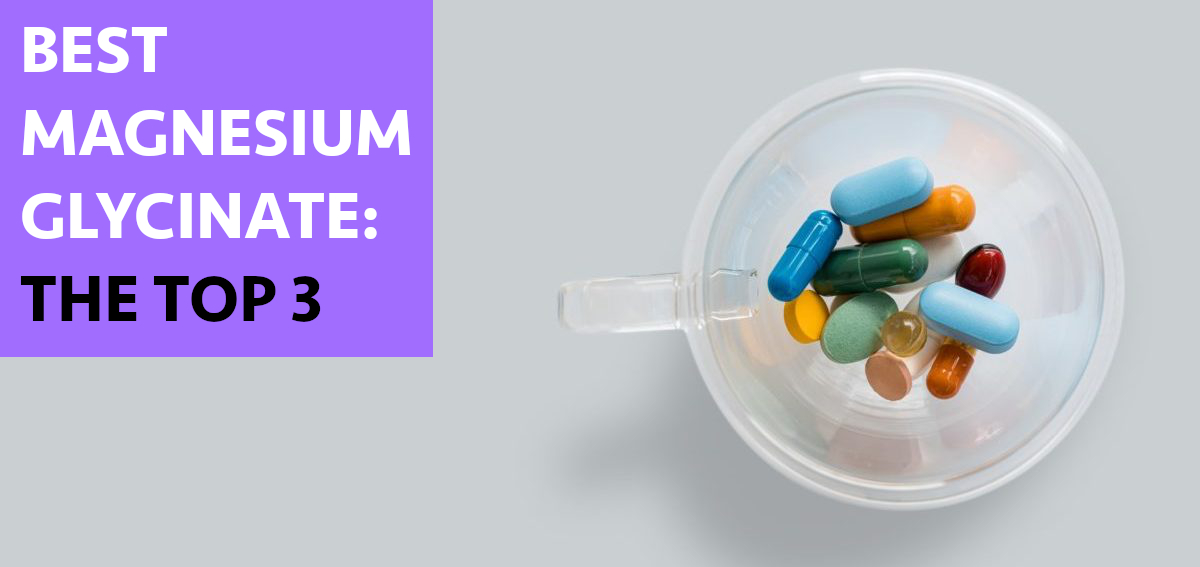This site is not intended to provide medical advice. Any information provided is purely for entertainment purposes. Always speak to your doctor before beginning a new health regime. Sponsored products may help maintain the costs of this site without costing you extra.
Magnesium has been linked to over 300 enzymatic processes in the human body, so it comes as no surprise that magnesium levels have been linked to a healthy heart. Of course supplements don’t fix everything, but is there a best type of magnesium when it comes to improving the health of our heart?
Magnesium is widley considered to be one of the best supplements for heart health, although there are many different kinds of magnesium on the market. Choosing a supplement that’s bioavailable is key to ensure the correct amount of elemental magnesium is absorbed rather than lost through our intestines. Magnesium oxide for example has poor bioavailability and a laxative effect so should therefore be avoided to improve cardiovascular function.
Having blood pressure that’s too low as a result of a weakened heart rate is no joke, but having high blood pressure also needs to be avoided. Keeping your heart operating at the right level is an important for good health and magnesium, especially in supplement form, plays a big role in this function. When you begin researching which brand is optimal for your body or condition- you’ll realise there’s a great deal of magnesium supplements and products to consider. Here we explore which supplement is most suited for cardiovascular health.
Why is magnesium good for the heart?
Magnesium has been shown to be important for heart conditions and a range of other important body supporting processes. In fact, studies have shown it’s one supplement almost everyone who is looking to improve the health of their heart should consider.
Magnesium is needed to ensure complete relaxation of blood vessels near your heart, which helps to maintain a healthy blood pressure. What’s more, studies have shown, participants that supplemented oral magnesium experienced better supported blood pressure, in comparison to those taking a placebo only. Magnesium was also shown to induce a concentration and smooth muscle cell-dependent dilation which is important for correct heart function. This is why considering a supplement to address magnesium deficiency absolutely essential.
Which magnesium is best for your heart?
If you’re using a magnesium supplement specifically to address your cardiovascular well-being, you may be better off taking more than one form of magnesium within your supplement.
Whilst it’s known magnesium citrate is a better absorbed magnesium, there are advantages to magnesium glycinate for cardiovascular health, increasing evidence has shown the amino-acid glycine offering protection against heart disease. This particular amino acid has shown the ability to improve the bodies use of nitric oxide, which is an important chemical that increases blood flow, whilst simultaneously lowering blood pressure (1). Demonstrating once again that magnesium was an incredibly important mineral to help heart conditions.
What type of magnesium supplement to take for heart palpitations
In a study to assess magnesium as a supplement the following was observed. In the treatment of cardiac arrhythmias of varying genesis, an “observational study” in 1,160 patients showed that a high-dose oral magnesium preparation (Magnesium-Diasporal N 300 Granulat) was effective. In 82% of the patients observed, a dose of at least 300 mg magnesium/day produced good to very good results. Proving Magnesium-Diasporal to be a very effective supplement in increasing magnesium levels.
In this instance magnesium diasporal is simply a form of magnesium buffered with citrate, which indicates citrate would be the best type of magnesium for heart problems such as palpitations. This is likely because mag citrate is well absorbed, it’s also believed this form of magnesium is the closest type of magnesium to that used naturally by the body. Magnesium buffered with citrate is a combination of magnesium oxide with citric acid that dissolves easily and appears to be readily absorbed.
In some cases optimising magnesium levels has even shown to completely stop heart palpitations for certain people which gives patients tremendous relief.
How much magnesium should I take for heart health?
In the above mentioned study it was observed that a dose no less than 300 mg of magnesium supplements were found to be effective in treating heart problems. The amount of magnesium needed to improve heart conditions depends on the persons age, weight and whether they suffer from a pre-existing magnesium deficiency. The recommended daily allowance of magnesium is between 350-420mg for adults. This amount of magnesium may be difficult to obtain from diet but is a fairly common dose when used in supplement form.
Can you take magnesium supplements if you have heart problems?
Getting adequate magnesium through supplements, diet, or both can not only prevent heart problems in many people but can even reverse certain conditions in others. Leading many experts to suggest magnesium is not only recommended but absolutely essential to good heart function.
Be aware, those suffering from severely low blood pressure should be careful when consuming magnesium. More often than not magnesium will aid in reducing blood pressure which is useful for most people, but those suffering from already low blood pressure may worsen their condition. If in doubt, consult your healthcare provider.
Best type of magnesium for heart arrhythmia?
Magnesium supplementation aids in controlling arrhythmia through a number of specific mechanisms. Oral magnesium supplementation has been found to work best in avoiding heart arrhythmia’s compared to treatment for an already developed arrhythmia, although anecdotal evidence has shown existing arrhythmia to benefit greatly from magnesium supplementation. The best magnesium for heart arrhythmia following anecdotal advice is both magnesium glycinate and magnesium citrate. This is likely because they are best suited in remedying a magnesium deficiency. Finding a quality source of magnesium is absolutely essential to get the full benefits of this mineral.
Can you take magnesium with heart medication?
Many people often ask if magnesium supplements can be taken alongside their other heart medications. Firstly it’s important to know that magnesium is a naturally occurring mineral in any case which means it is present in a variety of foods. Whilst supplements contain a more concentrated dose we are still ingesting magnesium daily if consuming a varied whole-foods diet. Magnesium has been proven effective in maintaining proper heart conditions in a variety of medical studies- however it may be worth speaking to your doctor before beginning a new supplement.
How much magnesium should I take for heart health?
The recommended daily allowance for an adult male is usually between 400-420 mg for men and 310-320 mg for women. If you have a cardiovascular condition as a result of low magnesium levels then you made need different amounts. Always speak to your doctor or health professional when attempting to resolve an illness with a supplement.
Summary
It’s proven that magnesium is essential for regulating heart rhythm due to it transporting electrolytes such as potassium and calcium in and out of cells. What’s more magnesium maintains the electrical stability of the cardiovascular system which in turn maintains your BPM.
Without adequate magnesium levels we can develop irregular heart beats which can manifest as health conditions such as persistent anxiety or nervousness. Magnesium deficiency has even been linked to increased likelihood of heart disease and other health conditions. Choosing the right magnesium does have a degree of personal preference, whilst magnesium citrate is often cited as the best it does have a low degree of absorbability. This often means those with digestive problems can experience bouts of diarrhoea using this form. Overall magnesium glycinate has shown the most promise due to the added amounts of beneficial glycine, which has been shown to independently improve heart well-being. Combined with its already high bioavailability this makes magnesium glycinate one of the best supplements to maintain cardiovascular wellness. Whichever source you choose there is no doubt magnesium should be strongly considered as one of the most beneficial heart health supplements.


